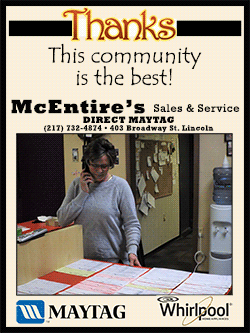|
 The coronavirus pandemic has prompted producers, movie studios and
workers' unions to seek expert advice on how to safely reopen film
and TV sets, which shut down worldwide in mid-March. The coronavirus pandemic has prompted producers, movie studios and
workers' unions to seek expert advice on how to safely reopen film
and TV sets, which shut down worldwide in mid-March.
In demand are epidemiologists and other public health specialists to
provide detailed strategies for dealing with large crews who work in
cramped spaces, makeup artists who get face-to-face with stars, and
actors who kiss, hug and fight on set.
The shutdown has taken a severe financial toll across the industry,
as well as on cities such as Los Angeles that benefit economically
from production. Restarting is important to companies, including
Netflix Inc, Walt Disney Co and others, which need fresh programming
to engage audiences.
While sets remain empty in the United States, productions are
ramping back up in South Korea, Australia, Sweden, as well as New
Zealand, where James Cameron's "Avatar 2" is restarting this week.
People who work in the industry expect to see smaller crews, regular
testing, hand sanitizer everywhere and the use of computer-generated
imagery to create big crowds on screen when work resumes.

'VILLAGE OF STAFF'
Writer-director Tyler Perry has taken the lead on getting cameras
rolling again, announcing plans to begin shooting two BET television
series on July 8 at his studio complex in Atlanta.
Perry's 330-acre self-contained lot offers housing where people can
be isolated to help prevent spread of the novel coronavirus, which
causes a sometimes fatal respiratory illness called COVID-19.
In a 31-page outline, Perry said "it took a village of staff,
medical doctors, epidemiologists, lawyers, union reps, talent and
their reps, crew members, insurers, and a lot of other great
thinkers" to develop safeguards.
One was Dr. Carlos del Rio, an infectious diseases expert at Emory
University, who said he advised that all cast and crew be tested at
the start and at least once during the two weeks they remain
sequestered for a shoot.
[to top of second column] |

Del Rio also made recommendations on hygiene and other protections, though he
noted nothing offers a 100% guarantee.
"It may fail" to keep coronavirus completely out of the set, he said. "But I
think it's also not feasible to say we're going to wait until the virus goes
away, or we have a vaccine, because then we might as well not work for the next
two years."
NEW PROTOCOLS
Unions representing actors and set employees, including SAG-AFTRA, IATSE and the
Directors Guild of America, have hired experts from Harvard and the University
of California to help develop guidelines.
All are looking to California Gov. Gavin Newsom, who is taking input from labor
and industry representatives and said he is aiming to release protocols for film
and TV shoots as early as this week.
Actors are watching closely. Actress Anna Kendrick, in an interview promoting
her HBO Max series "Love Life," said some ideas she's heard sound like they're
from "somebody who's never been on a film set."
"In my experience people on film sets, as opposed to people in an airport, we
all know we’re on the same team, we’re all just trying to keep each other safe,"
she said. "I think it can be done, but I haven’t seen super great solutions
yet."
Handling the coronavirus is complicated in television because many workers are
freelancers, said Dr. Paul Litchfield, an occupational physician, who helped
develop guidelines for TV networks in Britain.
"People are moving in and out of your bubble to other productions with other
companies," he said. "So it's making sure that the guidance is consistent across
(TV) companies."
(Reporting by Lisa Richwine; Additional reporting by Jill Serjeant in Los
Angeles and Alicia Powell in New York; Editing by Bill Tarrant and Aurora Ellis)
[© 2020 Thomson Reuters. All rights
reserved.] Copyright 2020 Reuters. All rights reserved. This material may not be published,
broadcast, rewritten or redistributed.
Thompson Reuters is solely responsible for this content. |